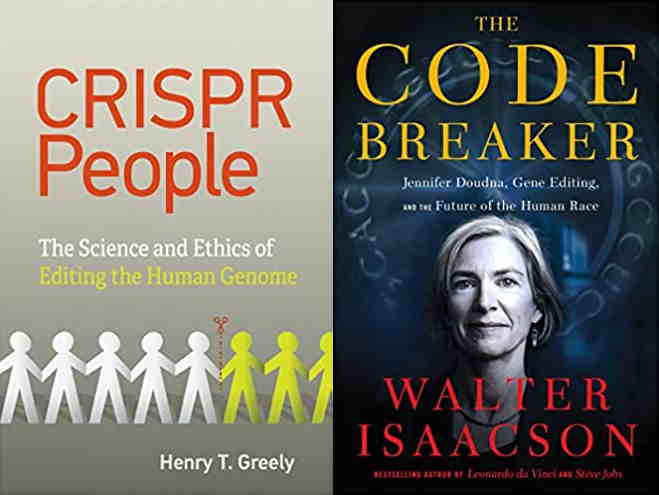A biographer and a bioethicist take on the CRISPR revolution
By Jackie Leach Scully,
Nature
| 03. 08. 2021
Thorny ethical questions and bitter scientific competition drive new accounts of the genome-editing story.
CRISPR People: The Science and Ethics of Editing Humans Henry T. Greely, MIT Press (2021)
The Code Breaker: Jennifer Doudna, Gene Editing, and the Future of the Human Race Walter Isaacson, Simon & Schuster (2021)
What we used to call genetic engineering has been subject to decades of bioethical scrutiny. Then, the arrival of CRISPR — which allows researchers to cut and paste gene sequences with vastly improved accuracy and efficiency — catapulted reassuringly distant science fiction into a pressing reality, and helped to concentrate minds. There’s now enough technical and popular writing on the technology and its ethics to fill many bookshelves.
Given that not even ten years have passed since the first papers showing a practical use for CRISPR in human genome editing, these accounts inevitably go over much of the same territory. The differences are in the authors’ perspectives — broadly enthusiastic about the possibilities of genome editing, or not — and whether the focus is on the discoveries, the ramifications, the personalities involved or some combination. Two new books on the topic differ markedly...
Related Articles
By Scott Solomon, The MIT Press Reader | 02.12.2026
Chris Mason is a man in a hurry.
“Sometimes walking from the subway to the lab takes too long, so I’ll start running,” he told me over breakfast at a bistro near his home in Brooklyn on a crisp...
By Diaa Hadid and Shweta Desai, NPR | 01.29.2026
MUMBRA, India — The afternoon sun shines on the woman in a commuter-town café, highlighting her almond-shaped eyes and pale skin, a look often sought after by couples who need an egg to have a baby.
"I have good eggs,"...
By George Janes, BioNews | 01.12.2026
A heart attack patient has become the first person to be treated in a clinical trial of an experimental gene therapy, which aims to strengthen blood vessels after coronary bypass surgery.
Coronary artery bypass surgery is performed to treat...
By Staff, ScienceDaily | 01.05.2026
Scientists at UNSW Sydney have developed a new form of CRISPR technology that could make gene therapy safer while also resolving a decades-long debate about how genes are switched off. The research shows that small chemical markers attached to DNA
...




